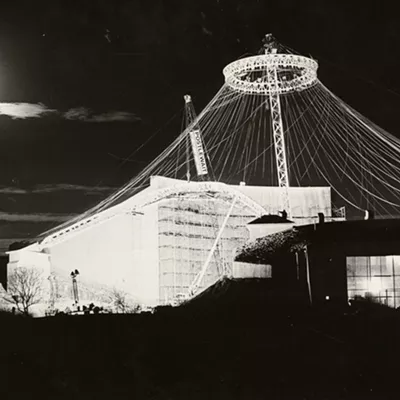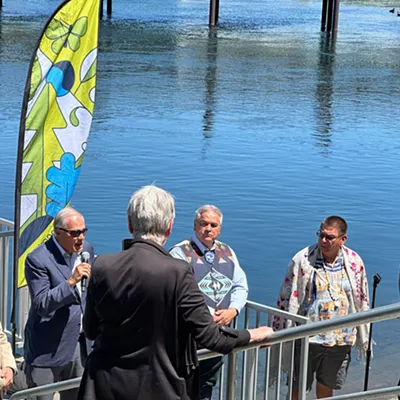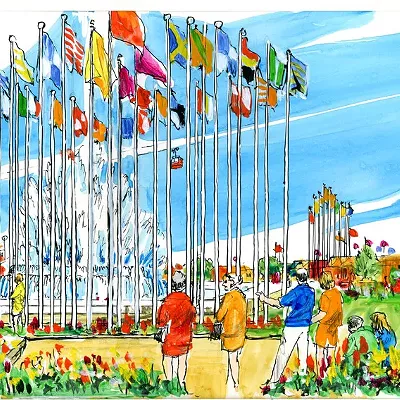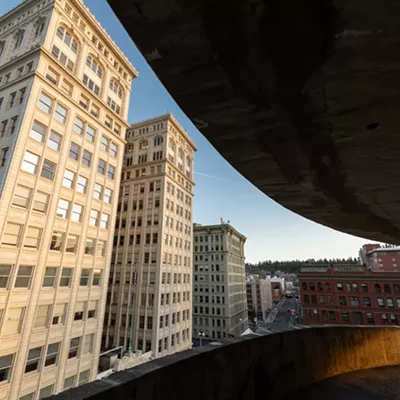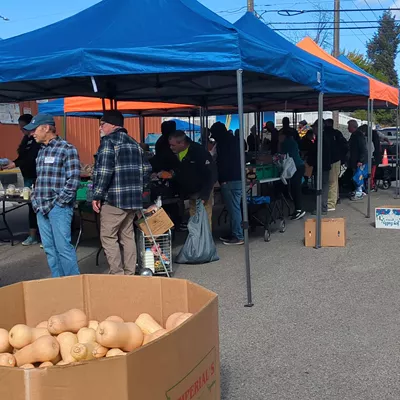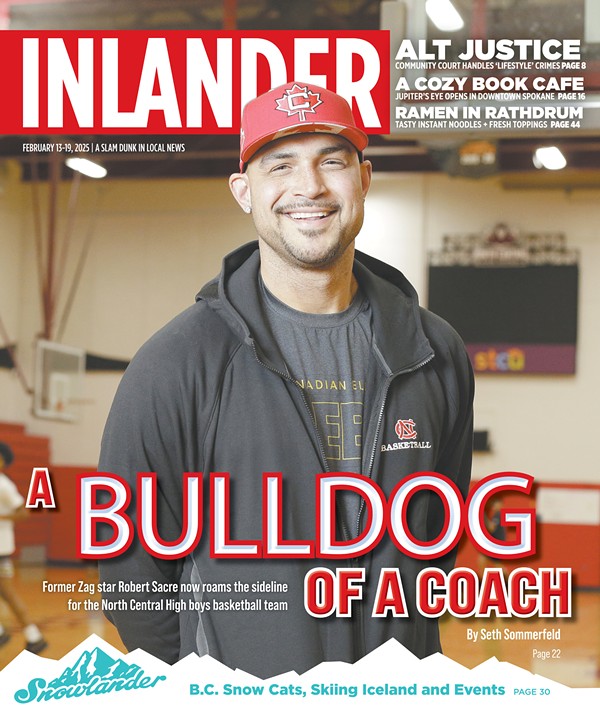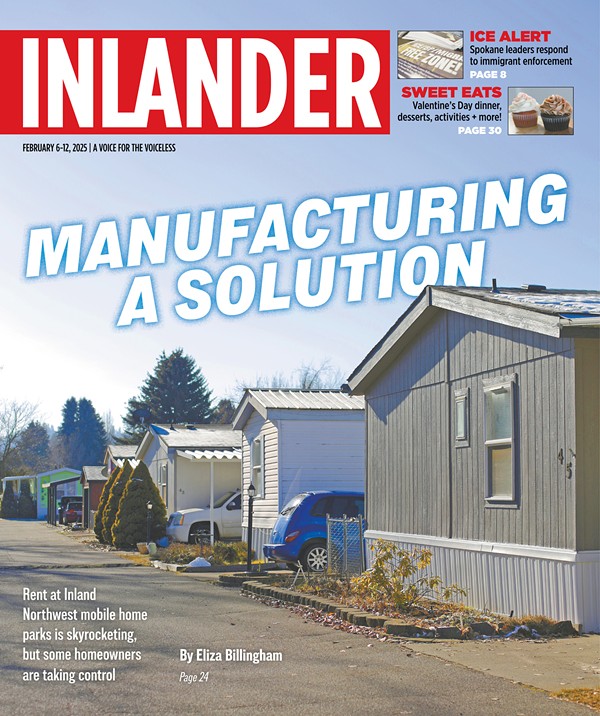In 1996, Bill Youngs published The Fair and the Falls, a mammoth book recounting the story behind the Expo '74 World's Fair and how it shaped the city of Spokane.
Over the course of four years, Youngs, a history professor at Eastern Washington University, worked with a team of student assistants to conduct hundreds of interviews and pore over thousands of archival documents. The final product became the biggest book ever written about an American World's Fair, Youngs says.
"That was blood, sweat and tears from yours truly, but also from a magnificent set of EWU students," he says. "I think of it as kind of a small mirror of what happened with Expo itself — getting the community behind the book made possible a book that would not otherwise have been possible."
The tome is a landmark account of Spokane history, but getting a copy has become difficult — and expensive — in recent years.
Now, with the city preparing to celebrate the fair's 50th anniversary, Youngs is republishing the book as a paperback that will be widely available through Gray Dog Press.
We talked to Youngs last week about what it was like to experience the 1974 World's Fair, the writing and research process, and what Expo '74 can teach us about Spokane today. His answers have been lightly edited for length and clarity.
INLANDER: When did you first become interested in Expo?
YOUNGS: In 1972, I was in the job market as a historian. I had a job offer from a school in Virginia, and then also Eastern. And one of the things that appealed to me about Eastern was the fact that there was going to be a World's Fair here, and I felt like any small city that can have a World's Fair is pretty impressive.
The World's Fair happened shortly after you came to Spokane — what was your impression of it?
I was very impressed. I thought, among other things, it's great to have a World Fair at your doorstep. And to be able to pick your time to go in when it's not going to be too crowded.
I had twins, they were about 4 years old when Expo started. It's fun doing something like that with children because of course everything is exciting to them. Things like the Garbage Goat, which is still there. My children just loved to go up there with a piece of paper and watch the Garbage Goat chew it up.
What did the research and interview process for the book look like?
It was a combination of things. One was often kind of word of mouth. People were aware of the book, and they'd say, "Oh, you ought to talk to this person or that person." I talked to three mayors, and then they would suggest somebody in the planning department of the city.
But also we did a lot of advertising. We had shirts that said "Expo '74, share your story." There would be six or eight research assistants running around in the summer at one place or another with these shirts.
We also put ads in the newspaper saying "Expo '74, share your experience," and we gave a phone number. And I had the phone hooked up to a recorder so even if none of us could answer, it would just say "This is the Expo hotline, please share your story." And that way we got not only the movers and shakers of the fair, but also a lot of other people that were basically fairgoers with very interesting stories.
Was there anything that surprised you during the research process?
There were just a lot of things, given the fact that it's such a big book — there's just a tremendous number of details that I didn't know about. And it was beautiful the way one thing kind of led to another.
Things like the basic funding structure of the fair. There was a bond election that failed, I think it got 57% approval, but it needed 60%. And it almost looked like the fair was dead in the water at that point. Until the business community got together and said, "We'll tax ourselves," with what's called a business and occupation tax. I remember one banker saying to me, "To business folk, a business and occupation tax is like a skunk at a garden party." People hated to do it, but they wanted to see the fair happen.
On pretty much every page is something that just was not common knowledge in terms of the details.
The book is really long and detailed. How did you approach writing and trying to structure it?
There was a big room in a dorm that wasn't being used very much. That summer I think I had nine or 10 research assistants. And staged around the room, we had boxes and papers representing different chapters. We had this all on blackboards around the walls: chapter one, chapter two, chapter three. People would come in daily with what they'd learned, and we knew just where to put it.
I remember in particular, these two students came in and they found that there was a whole pile of notes opposing the environmental [Garbage] Goat. And why would you do that? Because that's kind of an icon today and it's just such fun. But various goat owners wrote in and said, "We don't like the idea that you're representing goats as eating trash." I remember one in particular, a kid maybe 8 or 10 years old saying, "I have a goat named Sally, and this is insulting to Sally because Sally doesn't eat trash!"
What lessons do you think Expo '74 can teach us about Spokane today?
I think the most important lesson to take from that is just the fact of what happens when you have a can-do spirit that ends up affecting an entire populace. It was first urban planners and city officials that were promoting it. But bit by bit, as it became more of reality, you had the entire community supporting it.
If there's an enduring lesson, beyond the physical aspect of having that park and having a river released from the burden of railroad tracks over it, it's the lesson that people working together can do pretty amazing things. ♦






